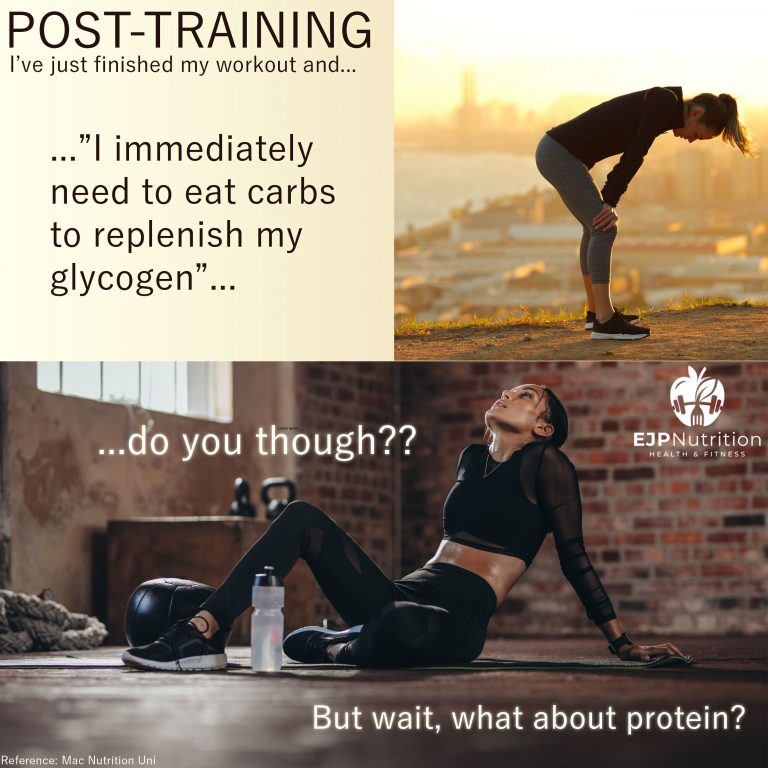Just finished training? Quick, get some carbs in! You need to replenish the glycogen you used. Hmmm, do you though? The answer is, in most circumstances, no.
For a 45-60 minute session or class, it’s unlikely you’ve tapped into your stores that much. If you stick to your usual eating pattern over the following 24 hours, that will be fine to top them back up.
Rather than carbs, what you do want for recovery is protein! Having protein after your workout will augment (assist/increase) your training adaptations. When I say ‘after’, again don’t worry too much on the absolute immediacy. Within an hour or two is fine, and even if it’s a little longer it will still give you some extra benefit. It doesn’t HAVE to be within 30 mins.
Protein after training is to minimise/inhibit MPB (muscle protein breakdown) and maximise MPS (muscle protein synthesis). Studies have shown there is an increased sensitivity to protein feeding for at least 24h after exercise.
Studies have looked at whether combining protein with carbs provides any extra benefit, and it doesn’t! As long as the protein amount/quality is high enough, adding carbs doesn’t further augment MPS.
Back to carbs and glycogen replenishment, for people working out 3-5 times a week it isn’t a priority to do anything special post-training. But for athletes, or individuals with much higher training requirements (multiple high intensity training sessions in one day, endurance training, numerous games close together etc) different strategies may be required.
The questions then are, how much are your stores currently depleted? When’s your next session? Do you need to utilise any carb periodisation strategies – such as train low, or recover low? Depending on those answers there are different strategies to refuel, with the higher end being 1-1.2g/kg/hour for the first 4 hours of recovery. Caffeine can be used too to help the carbs be more quickly converted into glycogen.
References: Mac Nutrition Uni, Beelen et al 2007, Staples et al 2015, Burke at al 2004, Pederson et al 2008
(Reposted from Instagram)


